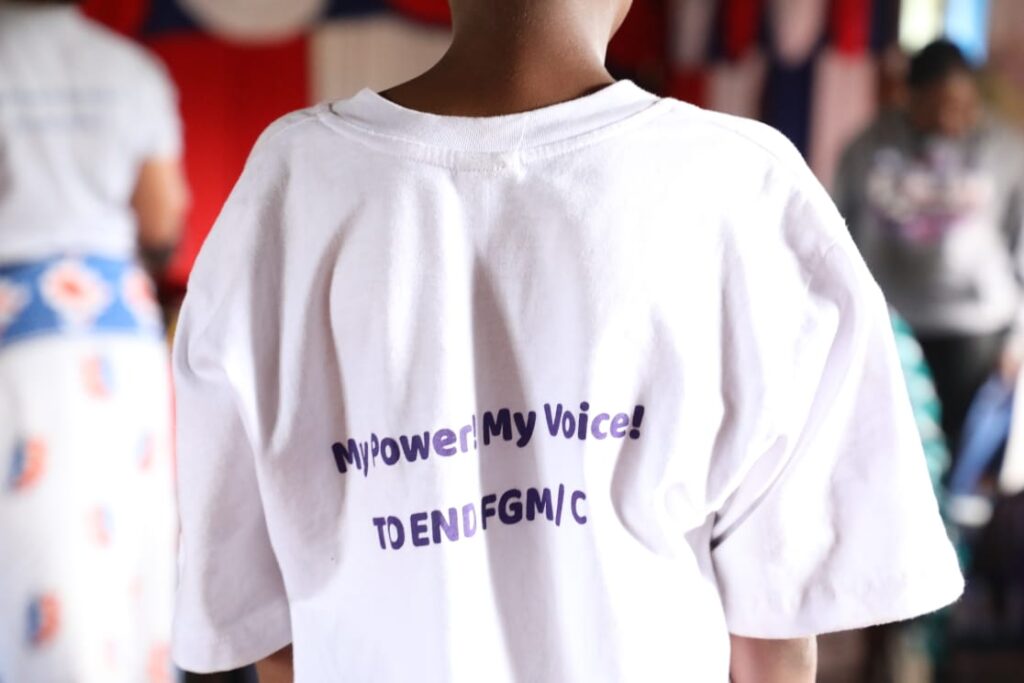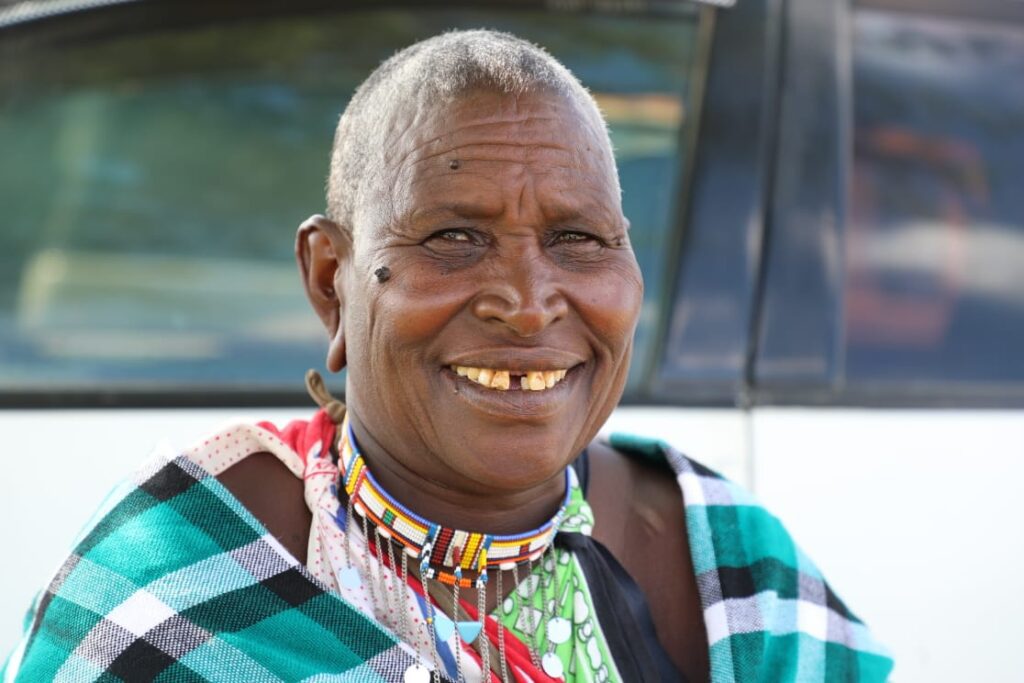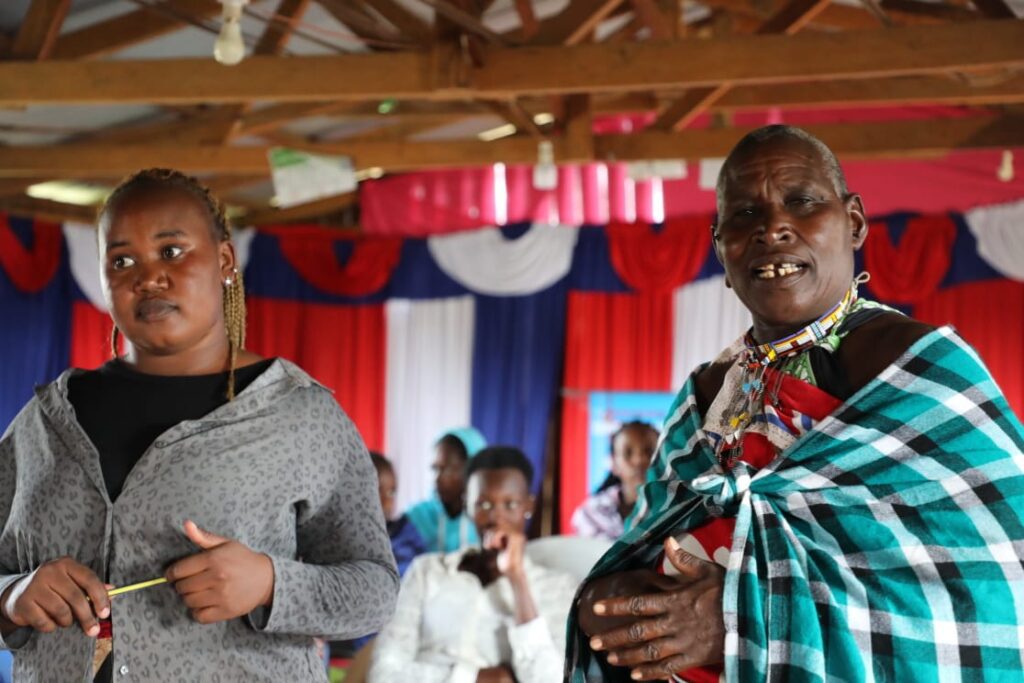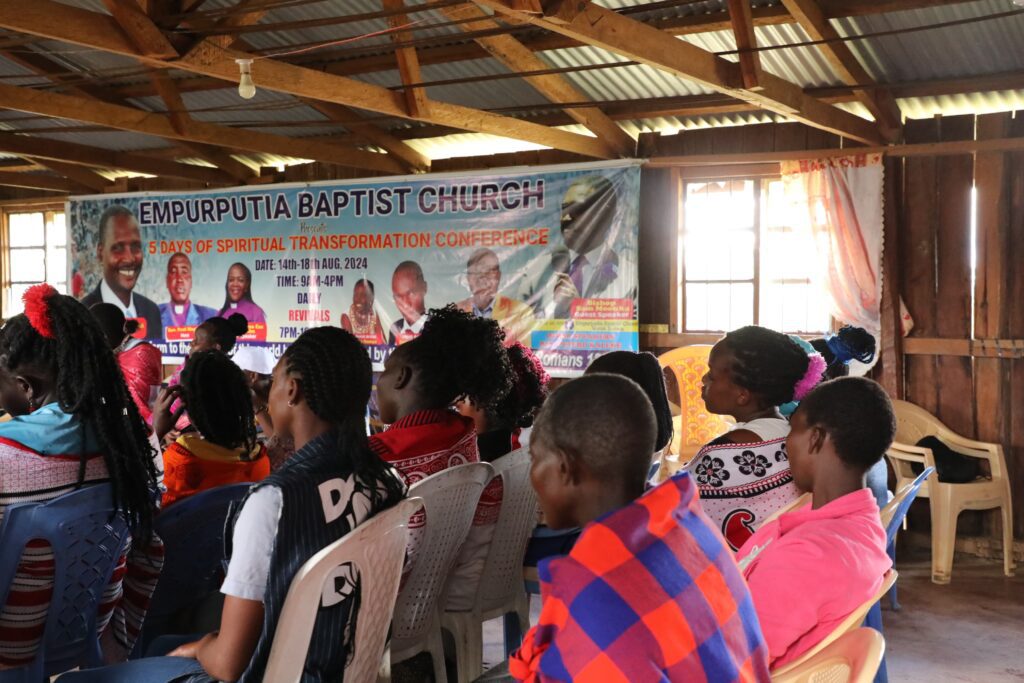Sarah Sakau stands tall, her presence radiating resilience and determination. Though she doesn’t know her exact age, she recalls being a young girl when the Nairobi-Narok highway was first built. We find her at an intergenerational forum in Empurputia Village, Narok County in Kenya—part of an initiative to curb Female Genital Mutilation (FGM).
These forums, often held during school holidays, bring mothers and daughters together to discuss the dangers of FGM. They serve as preventative spaces, keeping girls informed and away from those who still advocate for cutting, a practice that often resurges during school breaks.
During one session, discussions centre on the evolving nature of FGM, now practised covertly. New methods include hospital-based procedures, travelling to remote areas to avoid scrutiny, and less severe forms of cutting to evade a legal and social backlash. Present at the forum are girls as young as nine.

“We start sensitising them early,” explains Hellen Seno, an anti-FGM champion. “Even young girls are vulnerable during holidays. They need to understand the risks and learn to say no.”
A 9-year-old girl attending the mother-daughter forum
Pride and Pain: Sarah’s Story
Sarah’s connection to FGM runs deep. “My mother was a renowned circumciser. She taught me everything I know,” Sarah shares. “It was a skill passed down with pride. When I came of age, I apprenticed under her, honing my craft.”

Her reputation as a skilled circumciser spread quickly. “People said I had a ‘cold hand’—meaning I worked with precision, causing minimal pain and quick recovery,” she explains. “If a girl I cut was out playing within days, it was proof of my expertise.”
Sarah Sakau during the interview with Amref Health Africa
Tradition dictated the timing. “When my daughters’ breasts started to develop, I knew it was time. It was my duty as their mother and circumciser to perform the rite.”
The practice was steeped in ritual. “My husband would slaughter a goat and smear goat fat on my hands to bless my work. This ensured my tools wouldn’t harm or kill the girls.”
For Sarah, cutting wasn’t just a livelihood but a cultural cornerstone. She charged between Ksh 4,000 and Ksh 6,000 per girl and travelled across Narok County due to high demand. “I’ve cut girls from five generations,” she says. “Even as methods changed—from full cutting to light work—each procedure carried risks.”
A Change of Heart
Sarah’s transformation began at a mother-daughter forum facilitated by Amref Health Africa’s The Girl Generationconsortium. These sessions aim to educate communities on the legal, health, and social consequences of FGM.
During one forum, Sarah’s neighbour, Sanau, spoke of Kenya’s Gender Act, which criminalises FGM. “Learning I could face imprisonment was a turning point,” Sarah recalls. “I’m in my mid-eighties. The thought of spending my final years in jail was terrifying.”
Her faith deepened her conviction. “As a Christian, I realised cutting was a sin. Pouring blood needlessly goes against God’s teachings. What I once saw as a blessing, I now recognise as a misguided ritual.”
Sarah took a courageous step, denouncing FGM/C publicly and surrendering her tools, including a scalpel, sharpening stone, and ceremonial goat skin.
A New Mission
“My message to other cutters is simple: STOP!” Sarah declares. “Uncut girls are getting married, while cut ones are often rejected. Times have changed, and so must we. We need to respect our daughters’ rights.”

Today, Sarah dedicates her remaining years to advocacy. “I no longer need money. What I want is to spread the message against FGM. These dialogues give me purpose.”
Sarah Sakau facilitating a discussion on the effects of FGM at the mother-daughter forum.
Sustaining Change
Amref Health Africa, through initiatives like the Alternative Rites of Passage programme and the Africa-led Girl Generation Movement, focus on community-driven solutions to end FGM. Interventions include intergenerational dialogues, mobile reporting tools, and awareness campaigns that highlight the legal and health risks of FGM. By engaging youth, women, religious leaders, and local organisations, these programmes foster cultural shifts while respecting community values.

The results are transformative. Intentions to cut future generations are declining. Survivors and former practitioners like Sarah are becoming advocates, championing human rights and sustainable alternatives to traditional practices.
Ongoing forum with an anti-FGM champion
The Power of Transformation
Sarah’s journey—from a celebrated circumciser to a passionate anti-FGM advocate—epitomises the power of education and dialogue. Her courage and voice now inspire others, proving it is never too late to change and protect the next generation. Through Amref’s programmes, cultural insiders are becoming agents of change, turning the tide against FGM and safeguarding the futures of countless girls.
Nyambura Gitonga, Communications, Family and Reproductive Health Program, Amref Health Africa
